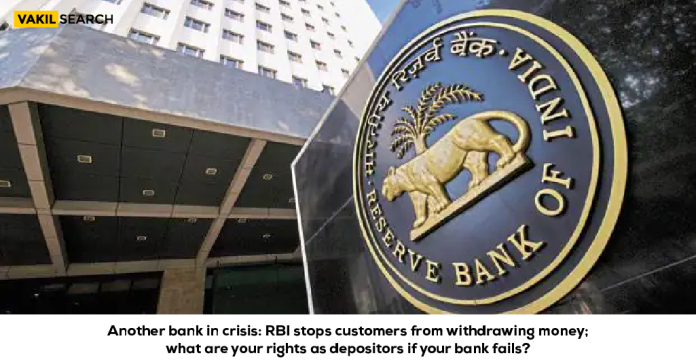In a concerning turn of events, the Reserve Bank of India (RBI) has implemented stringent restrictions on Shirpur Merchants’ Co-operative Bank in Maharashtra, leaving customers unable to access their funds for the next six months. This move comes amidst the bank’s escalating financial troubles, sparking fear and uncertainty among its thousands of depositors.
This isn’t an isolated incident. The RBI has previously imposed similar limitations on other banks like PMC Bank and YES Bank, raising questions about the stability of the banking sector.
Understanding the RBI’s Directive
The RBI’s recent press release dated April 8, 2024, outlined the restrictions imposed on Shirpur Merchants’ Co-operative Bank. It stated, ‘From the close of business on April 08, 2024, the bank shall not, without prior approval of RBI in writing, grant or renew any loans and advances, make any investment, incur any liability including borrower of funds and acceptance of fresh deposits, disburse or agree to disburse any payment whether in discharge of its liabilities and obligations or otherwise…’
Additionally, considering the bank’s liquidity crisis, the RBI emphasised that no withdrawals would be permitted from any depositor’s account, although loans could be offset against deposits under certain conditions.
Depositor Rights and Protections
In the event of a bank failure, depositors are protected under the Deposit Insurance and Credit Guarantee Corporation (DICGC) Act, ensuring coverage of up to ₹ 5 lakh, encompassing both principal and interest amounts across all types of deposits.
For Shirpur Merchants’ Co-operative Bank customers, the RBI assured, ‘The eligible depositors would be entitled to receive a deposit insurance claim amount of his/her deposits up to a monetary ceiling of ₹5,00,000/- (Rupees five lakh only) in the same capacity and in the same right…’
Timely Relief for Depositors
Recognising the distress faced by depositors, the government amended the DICGC Act in 2021, ensuring that customers of failed or stressed banks, like those under moratorium, receive their deposits (up to ₹ 5 lakh) within 90 days of the moratorium’s commencement.
Finance Minister Nirmala Sitharaman explained the process, stating, ‘The stressed bank is expected to collate all information regarding the number of claimants and claim amount and inform DICGC about it within the first 45 days. Within the next 45 days, DICGC is mandated to process the claim and make payment to each eligible depositor.’
Seeking Further Guidance
For Shirpur Merchants’ Co-operative Bank depositors seeking clarity, the RBI advised contacting bank officials or visiting the DICGC website for additional information.
Understanding Deposit Insurance
It’s crucial to note that DICGC covers various types of deposits but excludes certain categories such as deposits of foreign or central/state governments, inter-bank deposits, among others. Additionally, if an individual’s total deposits exceed ₹ 5 lakh in a single bank, they will only be eligible for the insured amount.
Coverage for Multiple Accounts
DICGC’s coverage extends to all accounts of a depositor, even across different branches of the same bank, with a maximum coverage limit of ₹ 5 lakh. Therefore, irrespective of the number of accounts held, the insurance cover remains capped at ₹ 5 lakh.
Joint Account Protection
Both single and joint accounts are separately covered under the DICGC scheme. In the event of a bank failure, each account, whether operated individually or jointly, will be insured up to ₹ 5 lakh.
With the ongoing challenges facing Shirpur Merchants’ Co-operative Bank and similar institutions, depositors must stay informed about their rights and the available protections to safeguard their finances.



